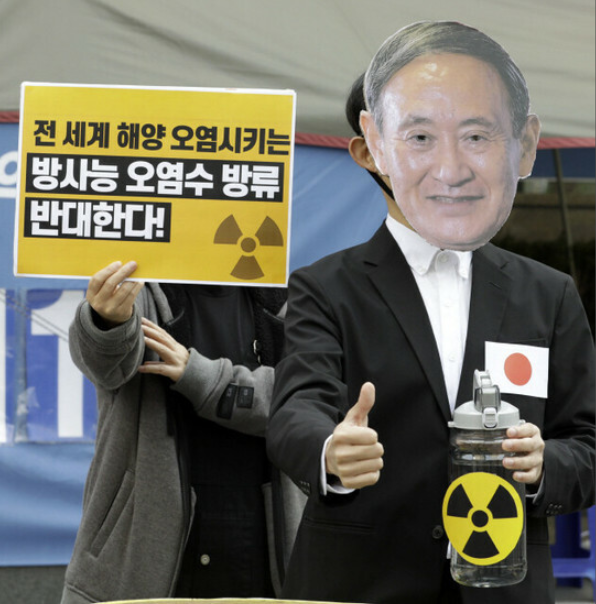
Overseas Network, October 24. Japan’s Fukushima Daiichi Nuclear Power Plant will be full of nuclear sewage storage tanks. The Japanese government recently stated that it is considering discharging a large amount of nuclear sewage into the sea. This statement aroused strong opposition in Japan and neighboring countries. On the 24th, South Korea’s “Han Minzu Daily” published an editorial saying that Japan ignored domestic and foreign concerns and wanted to discharge nuclear contaminated water into the sea, which would inevitably have a direct impact on South Korea. The article is excerpted as follows:
The Japanese government originally planned to decide on October 27 how to dispose of 1.23 million tons of nuclear waste water containing the radioactive substance “tritium”, and then adjusted the plan amid criticism at home and abroad. Although the Japanese government postponed a decision until next month, it does not seem to change the established policy of discharging nuclear sewage into the sea.
Japanese Prime Minister Yoshihide Suga said: “The plan cannot be invalidated because of the delay in making a decision. As the government, I hope to take responsibility as soon as possible to finalize the nuclear sewage treatment policy.” The Yoshihide Suga government ignored the strong concerns in Japan and neighboring countries. Instead, he should advance the matter quickly, and he should look directly at the consequences of this matter.
More than 9 years have passed since the Fukushima nuclear accident in Japan, and nuclear sewage had accumulated to 1.23 million tons as of last month (September).
The Japanese government claims that other countries with nuclear power plants also treat sewage and discharge it into the ocean. As long as the radioactive elements are removed through the “Multi-Nuclide Removal Device” (ALPS), there will be no problem. However, many experts have warned that the triple water element that cannot be removed by this device will be taken into the body by marine organisms. If it accumulates in the body, it may cause genetic factors to mutate.
The international environmental organization “Greenpeace” issued a report on the 23rd, claiming that nuclear sewage contains a variety of dangerous substances and criticizing the Japanese government for not making the facts clear to the public. In Japan, many organizations, led by local residents, local governments, and environmental activists, are also actively speaking out against the discharge of nuclear sewage into the ocean. “Tokyo Shimbun” pointed out in its editorial No. 21 that in the 1950s, chemical factories discharged waste water containing mercury into the sea. Residents suffered from Minamata disease as a result. I hope the government will remember the profound lessons that year.
If Japan really discharges nuclear sewage into the sea, South Korea is bound to be directly affected. On the 22nd, South Korea’s ruling party leader of the Common Democratic Party, Li Luoyuan, Japan’s ambassador to South Korea Koji Sotto met, demanding that Japan “transparently disclose all information and proceed with this matter after obtaining the consent of the international community”.
If the Yoshihide Suga government forces a decision to discharge nuclear sewage into the ocean, I hope he will realize that it will become more difficult to improve relations between South Korea and Japan. The discharge of nuclear sewage into the sea is directly related to people’s health, damage to the natural environment, and deterioration of relations between South Korea and Japan.



